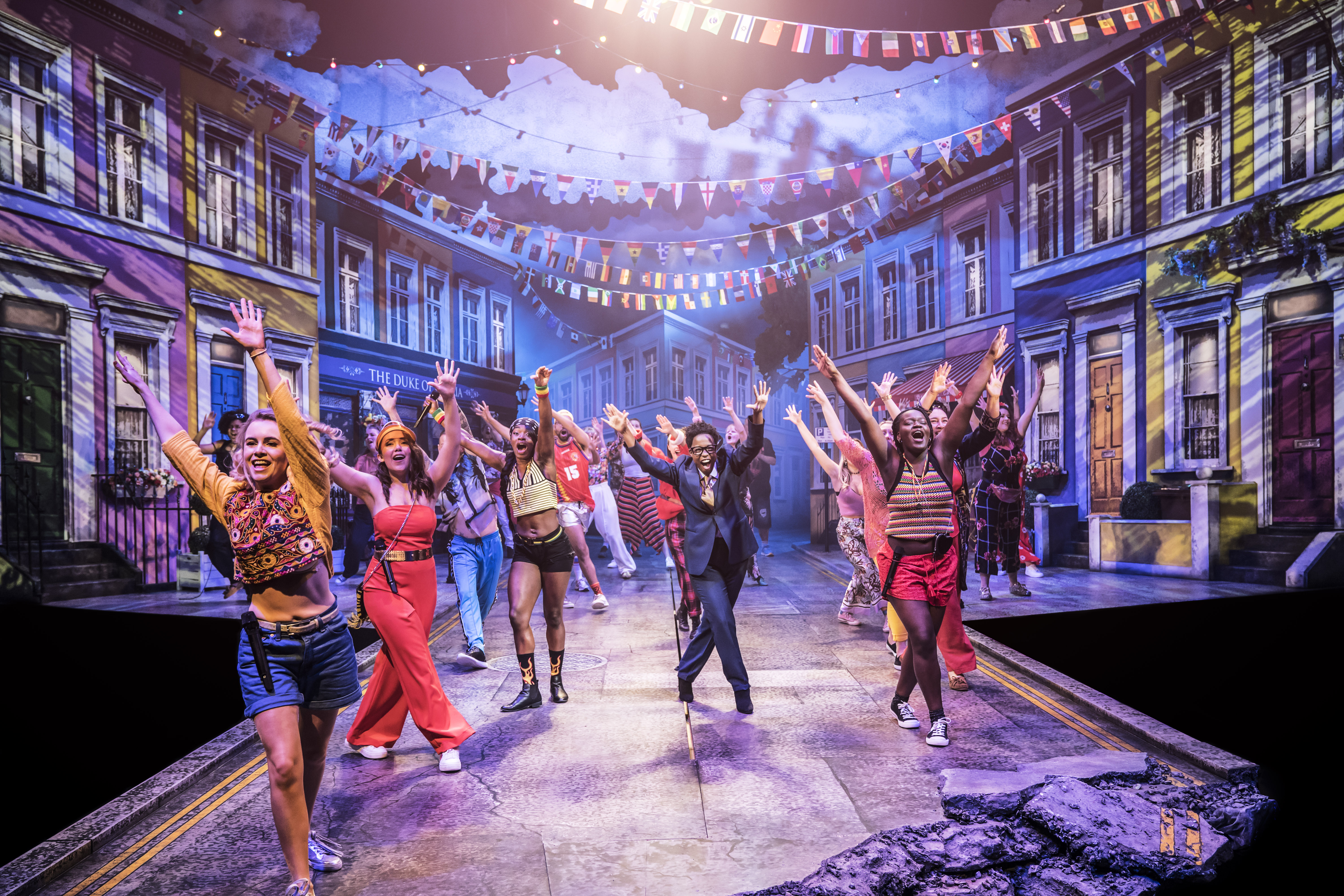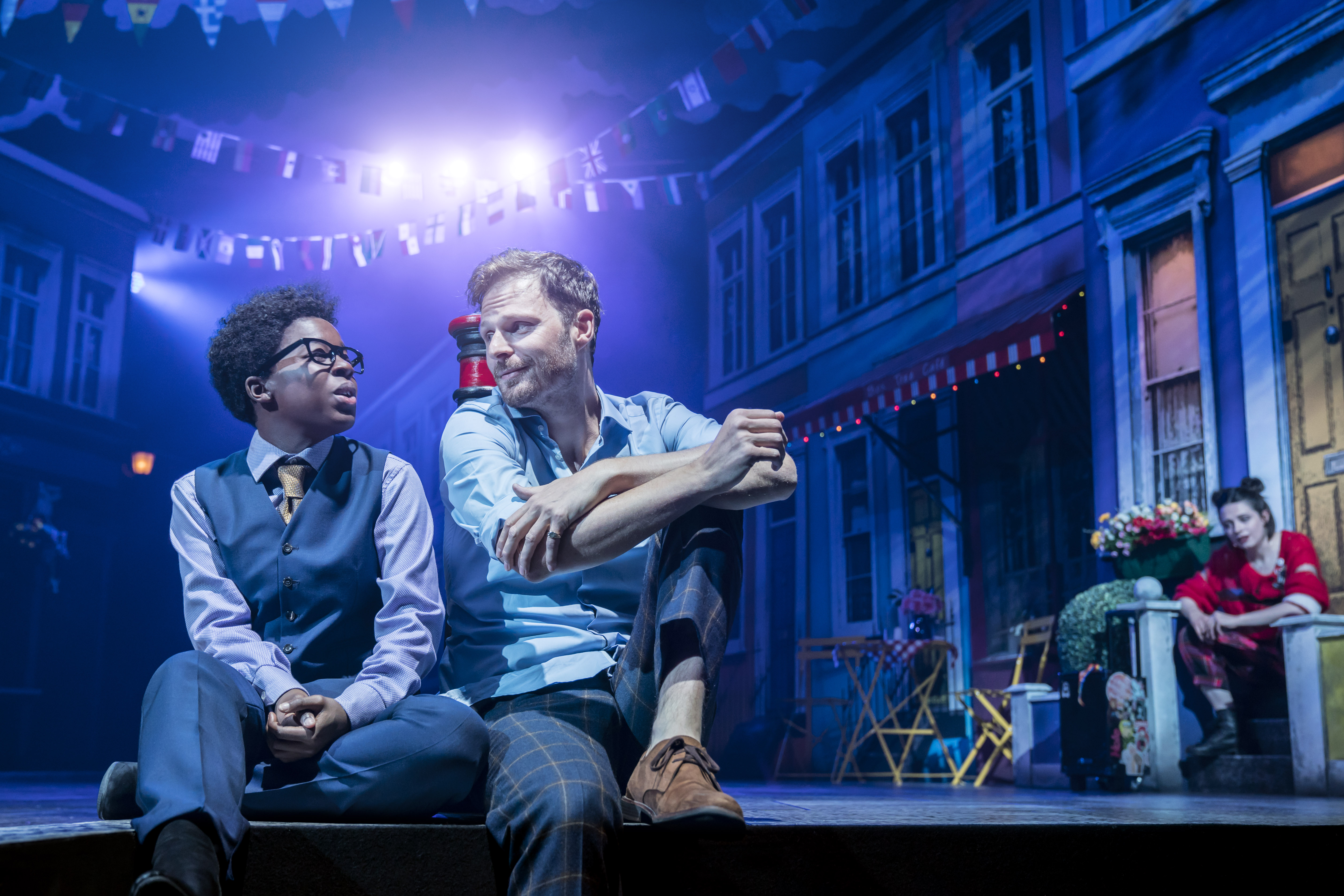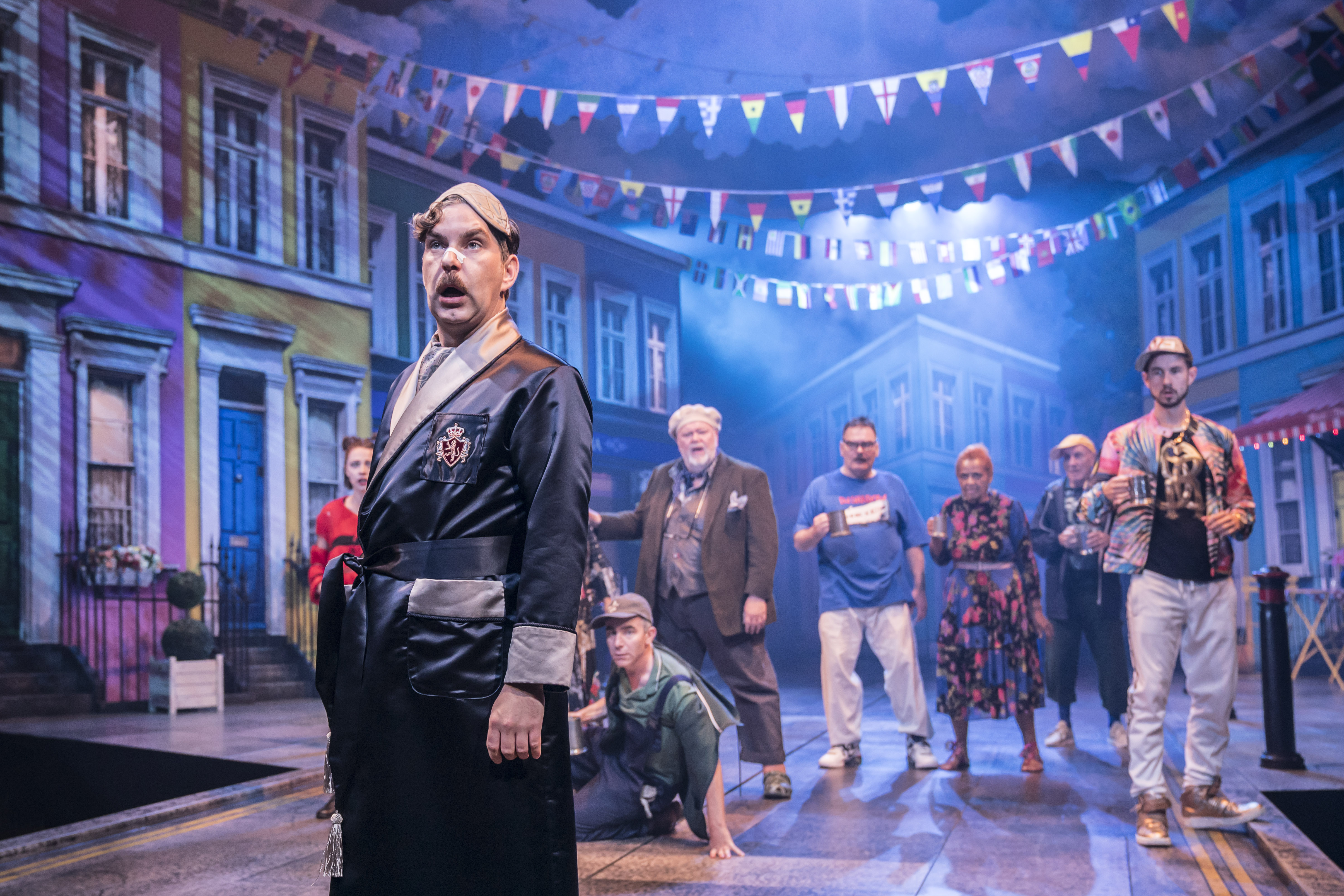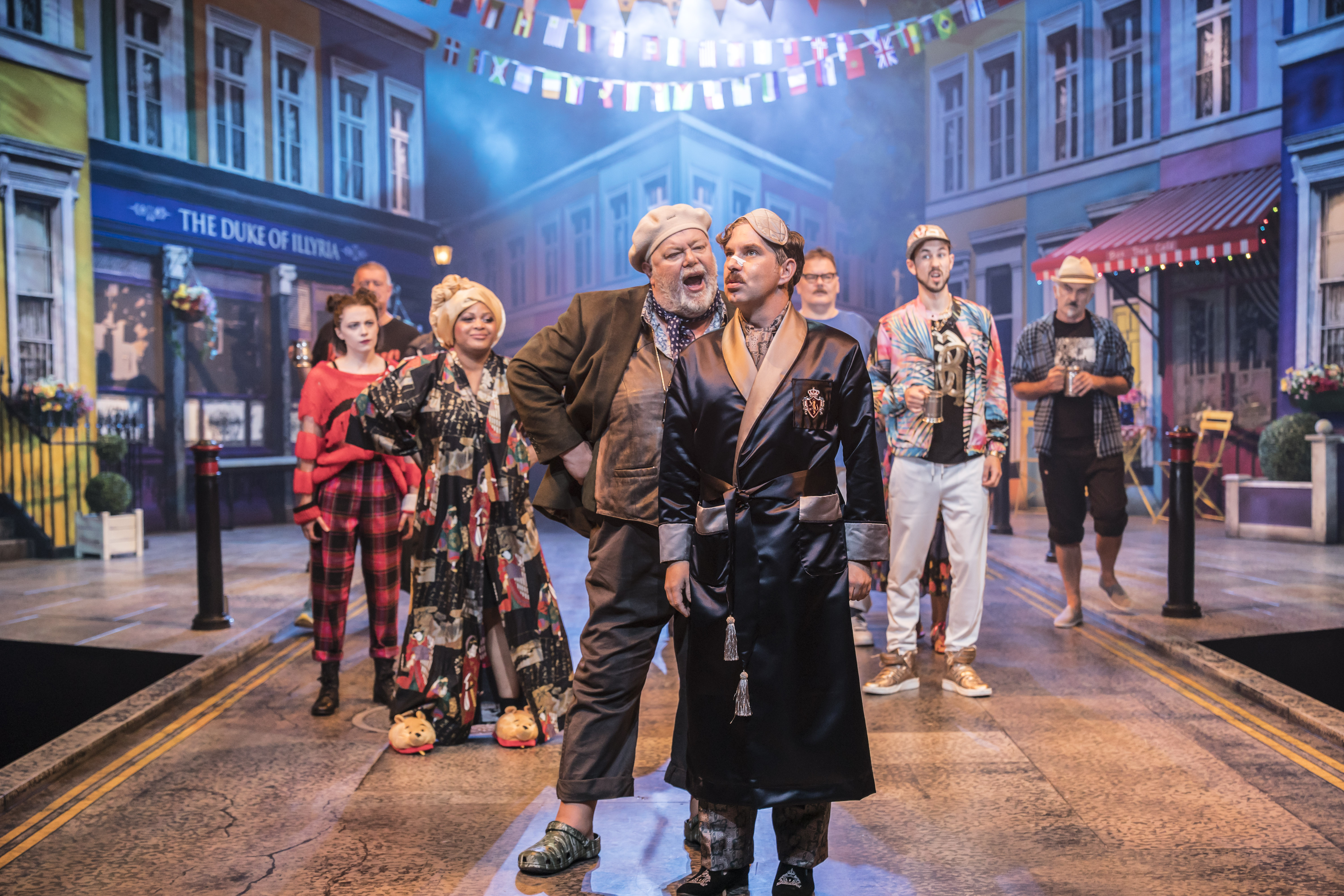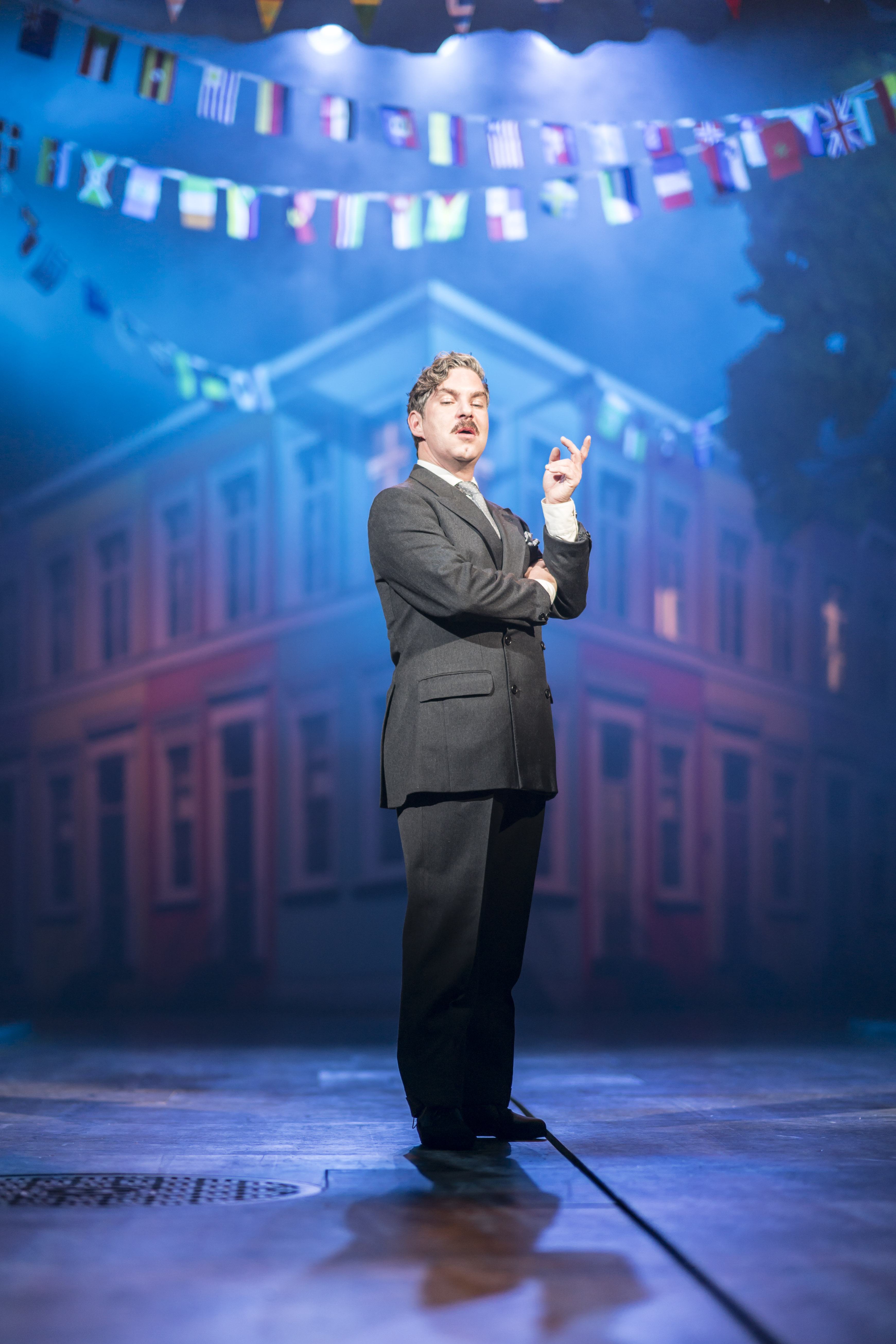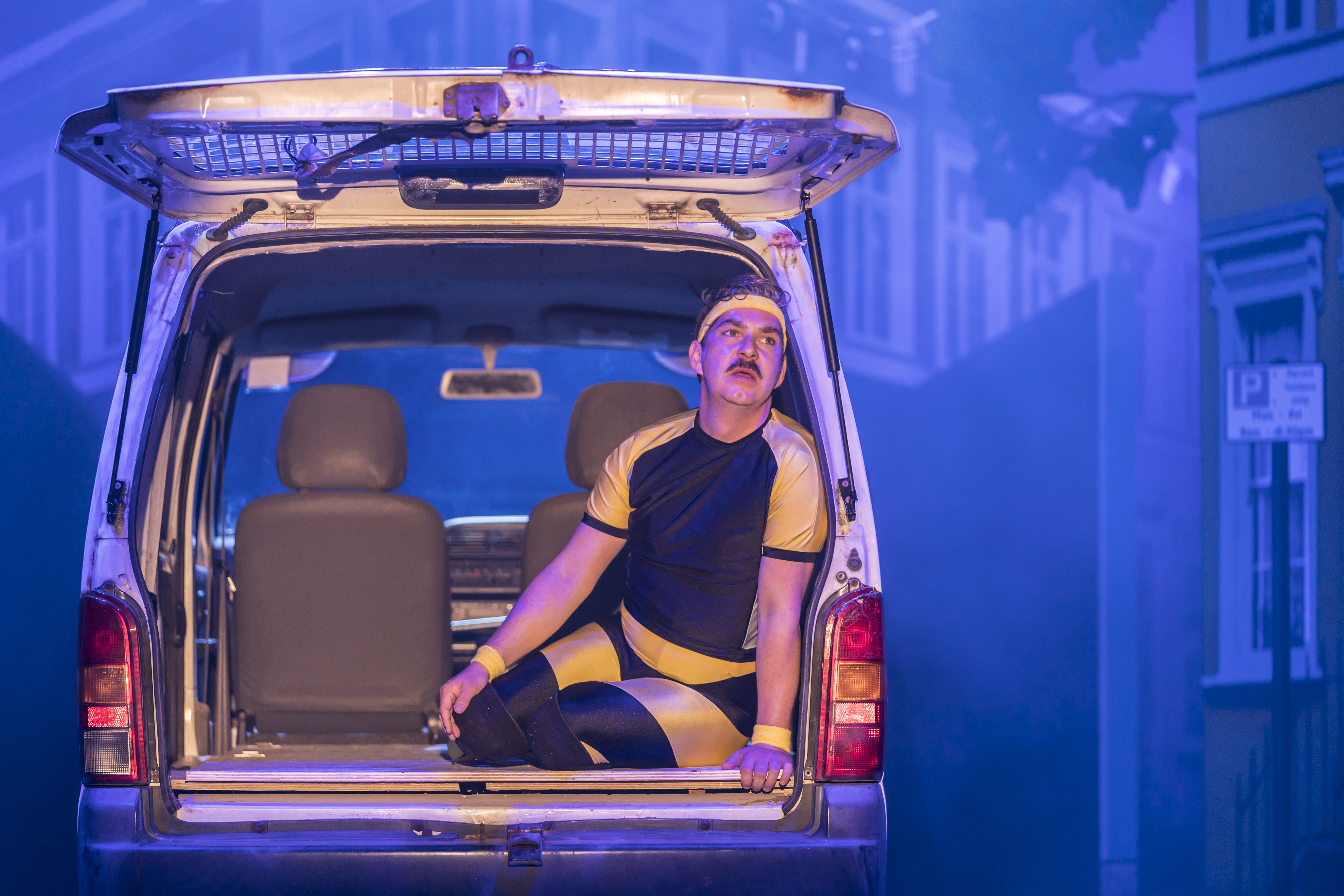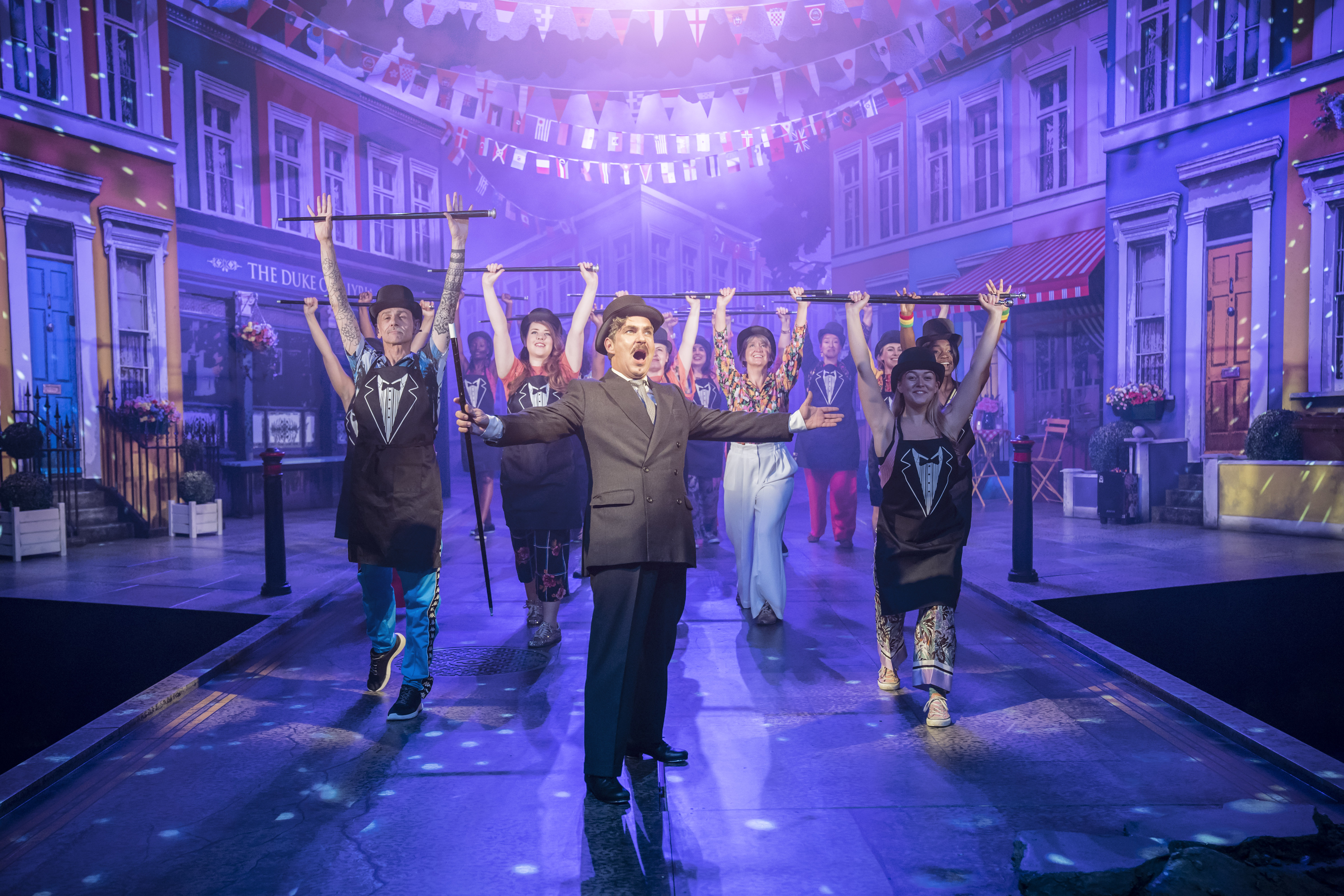If there is indeed a Shakespeare play for every place, occasion and mood, then the bard’s comedy/farce Twelfth Night might very well have been designed specifically for a rowdy Saturday night hen (or stag) night performance at the end of Blackpool pier… or an East End public house. With its chaotic, contrived – yet elaborately constructed – narratives about ‘labored loves’, both lost and unfounded, it can be both frustrating and hilarious in equal measures.
This adaptation, conceived by the Young Vic’s new artistic director Kwame Kwei-Armah alongside songwriter Shaina Taub, is brought vividly up to date with its contemporary London setting, and modern music and choreography.
Set during the Illyria Carnival – presumably standing in for Notting Hill – we are thrown into a fully immersive theatre experience; one that includes street food, buskers, and a funeral procession – complete with on-stage van/hearse.
a piece of unashamedly entertaining theatre
Thereafter, we witness the twin stories of siblings, Viola and Sebastion as they survive – and get separated by – a catastrophic flood.
The play being centered primarily around Viola’s journey, we see her disguise herself as a male named ‘Cesario,’ and seek employment as a servant to the wealthy Duke Orsino.
It turns out that Orsino is infatuated by the equally well-to-do Olivia who – citing the death of her father and brother in the storm – ignores his advances.
Of course, what are servants for, other than to entreat on behalf of their masters (?)
And so, ‘Cesario’ is sent to Olivia to do just that. Predictably enough, Olivia falls for ‘Cesario’, who – as Viola – secretly loves his/her master, Orsino.
Of course, things get much worse before they get better… for some, at least (!)
We see this most notably within Olivia’s household, where her meddling staff – aided by rich ne’er-do-well Sir Toby Belch – seek to make a fool of servant-at-arms, Malvolio.
Malvolio is one of Shakespeare’s great tragi-comic creations; a servant who believes himself to be a king. Superbly played by Gerard Carey, he is a study of hilarious pomposity; treating others with an ill-disguised contempt matched only by the self-loathing he reserves for himself, for being born poor. Although in danger of being a little too broad on occasion, the energy, wit, and well rounded ‘showbiz chops’ that Carey exhibits are hugely entertaining.
Elsewhere, Martyn Ellis’ Belch is great fun, as is Gremisola Ikumelo’s servant, Maria.
But it is the two female leads who impress the most.
Firstly, Melissa Allen is excellent as Feste/Fool, the wise, young ‘street whisperer’. Transcending the character’s original role of ‘expositioner-in-chief’, she soon carves out her own emotional journey; singing with technique and feeling and making fair mockery of any apparent initial understatement.
Gabrielle Brooks is simply stunning in the dual roles of Viola and Cesario. She is equally compelling as both girl and boy, and her comic timing, physicality, dancing and command of pathos are superb. Last, but not least, her voice… The mix of musical intelligence, clarity, and soulfulness – eschewing ostentation – reminds me of Cynthia Erivo. Miss Brooks is one to watch.
Shaina Taub’s songs are excellent; the memorable and versatile tunes augmenting the story expositionally, whilst extending the character’s stories emotionally. The clever use of motifs and ‘baton-changing’ refrains help us to understand each character, whilst simultaneously drawing the (ostensibly disconnected) story-lines together.
The (mostly unseen) five-strong band – led by Conductor/MD Sean Green – perform the music well and – although the music sounds a little ‘tinny’ at times – the amount of (often overlapping) dialogue and singing onstage indicate just how much credit Richard Brooker deserves for his clear, crisp Sound Design.
Robert Jones’ set design is also fantastic. It is one of the best uses of height, depth, and width I have witnessed in a medium-sized theatre for a long time. Excellently immersive.
Lizzi Gee’s choreography is effective when evoking the initial storm or conjuring the spirit of a street carnival. During the dance routines, there is often a large number of performers on stage; it is to Gee’s credit that they remain tight in their movements, yet not so much that they lose their individuality.
Gabrielle Brooks is simply stunning in the dual roles of Viola and Cesario. She is equally compelling as both girl and boy, and her comic timing, physicality, dancing and command of pathos are superb.
Lastly, much credit must go to co-directors Kwame Kwei-Armah – gregarious, dapper polymath that he is – and Oskar Eustis. They have created a piece of unashamedly entertaining theatre, from a play that can often seem either too exposition-heavy, or just plain dull.
They’ve addressed the first issue by presenting different character’s voices to narrate (e.g. Feste, Viola, Olivia, Malvolio, and even a six-strong Beyoncé-evoking girl group); the second issue is dealt with by using (almost) every trick in the theatre play-book, including great music, a Fred Astaire-like tap-dance routine, a clothes-based contemporary dance routine, a motor-vehicle, and even an electric street-board.
Also, the choice to take the story of two rich houses – and their servants – out into the (multi-ethnic) streets is inspired, and helps – even more – to bring the piece into the present.
Note: the female protagonist escapes the need to become a male (enabling her to move up in the world) only by getting wed to her one-time master. I’m not sure how ‘progressive’ this message is, but hey…that’s Shakespeare.
That having been said, if you want to see a Shakespearean farce that’s not forced, or a comedy that is actually funny, go and see this show. And if music truly is the ‘food of love (ly theatre)’…well, again, you know what to do.






















